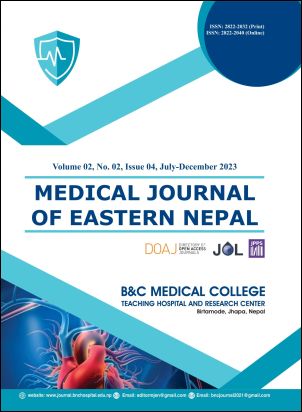Competency-Based Medical Curriculum: A Resurgent Paradigm for Medical and Dental Graduates
DOI:
https://doi.org/10.3126/mjen.v2i02.60786Keywords:
Attitudes, Competency based curriculum, Knowledge, SkillsAbstract
Present society is characterized by its growing complexity, dynamics and knowledge intensity, which requires professionals who are able to face new situations and problems confidently and expertly. Education faces the problem that knowledge acquisition does not necessarily mean the successful application of the same knowledge. In case of academic professionals, they should possess a broad and profound domain-specific knowledge and skills, the capability to acquire knowledge expeditiously and know-how where and when needed. Learning in a professional context has, therefore, become more important and general academic education is becoming more professional oriented. Medical education is changing to meet the demands of ever evolving health care system. One of these changes is the development and implementation of competency-based medical education (CBME). Competency-based learning and training is an approach to teaching and learning more often used in learning concrete skills than abstract learning. It differs from other non-related approaches in that the unit of learning is extremely fine-grained. Rather than a course or a module, every individual skill or learning outcome (known as a competency) is one single unit. Learners work on one competency at a time, which is likely a small component of a larger learning goal. The student is evaluated on the individual competency and can only move on to other competencies after they have mastered the current skill being learned. After that, higher or more complex competencies are learned to a degree of mastery and are isolated from other topics. Another common component of competency-based learning is the ability to skip learning modules entirely if the learner can demonstrate mastery. This can be determined through prior learning assessment or formative testing. This article pertaining to the discipline of medical education gives a broad overview and elaborates on this emerging competency based medical education approach and its related concepts.
Downloads
Downloads
Published
How to Cite
Issue
Section
License
Copyright (c) 2023 B & C Medical College and Teaching Hospital and Research Centre

This work is licensed under a Creative Commons Attribution 4.0 International License.
CC BY: This license allows reusers to distribute, remix, adapt, and build upon the material in any medium or format, so long as attribution is given to the creator. The license allows for commercial use.




